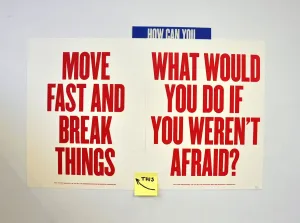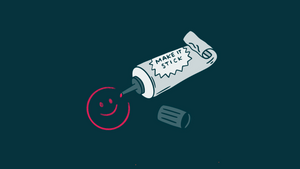
It’s a catch-22. Staff are responsible for: managing their own time and setting clear boundaries, despite now living in the office + email/phone; for letting managers know if workloads are too much, despite the underlying fear of being let go; for taking care of body and their mind by exercising regularly and eating well, despite multiple lockdowns. This needs to change and here’s how.
Workplaces have undergone a radical transformation over the past two years. Working from home is now a viable alternative to the office 9-to-5. Hundreds of thousands of employees have reevaluated their careers leading to the phenomenon known as the great resignation. Meanwhile, volatile markets have kept employees and employers on their toes, prompting both talent shortages and mass layoffs.
This uncertain and turbulent environment coincided with a significant rise in employee burnout - a “syndrome” that has been defined by the World Health Organisation as a “chronic workplace stress that has not been successfully managed.”
- In 2020, the charity Mental Health UK found that in the UK 46% of workers felt “more prone to extreme levels of stress” compared to the same time last year in March.
- A report released in March 2021 from employment listing website Indeed revealed that employee burnout rose by 9% during Covid to 52%.
- A global review by Microsoft revealed that 41% of the 30,000 workers they surveyed were thinking about quitting or changing professions in 2021. Another from HR Software company Personio showed that 38% of workers based in the UK and Ireland planned to quit.
In response companies arranged yoga classes, sent care packages and brought subscriptions to mindfulness apps. But despite these well meaning gestures and a clear need for support, uptake was low.
Employees, faced with swelling workloads, new ways of working and job security fears, didn’t feel like they had capacity to attend.
In a society that places the responsibility of “self-care” squarely at the feet of the individual, this is highly problematic for employees and employers alike. Under these circumstances the autonomy required to prioritise health over to-do lists is limited.
Staff are responsible for: managing their own time and setting clear boundaries, despite now living in the office + email/phone; for letting managers know if workloads are too much, despite the underlying fear of being let go; for taking care of body and their mind by exercising regularly and eating well, despite multiple lockdowns.
The result is a catch-22.
Burnout is costing businesses dearly
The total financial impact of this crisis is yet to be officially quantified, but if recent estimates and research are anything to go by it could cost firms trillions.
No matter what size company you are, the cost of resignations and rehiring is significant. Avoidable turnover is estimated to cost employers 33% of an employee’s annual salary. When applied to the median UK salary of £31,285 the average cost of turnover per employee comes out to a whopping £10,324 at a minimum, with experts warning it could be as high as £25,000 per employee.
Now zoom out and see what this means for the economy. For example in America, more than four million quit their jobs in April alone. If all these roles were rehired this could cost companies $68 billion - which is more than three times the value of the entire US corporate wellness market in 2019.
Meanwhile, research by the World Health Organization published in July 2021 found that mental-health issues cost the global economy $1 trillion because of lost productivity. The Centers for Disease Control and Prevention said that depression leads to 200 million lost workdays annually in the US, which in the US cost employers anywhere between $17 billion to $44 billion.
Burnout also has serious health implications. Alongside ensuing mental health conditions, it also increases the risk of coronary disease, type II diabetes and has neurological implications that can affect decision-making, memory, attention, and emotion regulation. These serious health issues come with a price tag. According to research from the Harvard Business School in the US an estimated $120-190 billion is spent on healthcare bills relating to burnout. This is a rate comparable to the cost of cancer, at $172.8 billion in losses each year.
“Fixing burnout” for the whole organisation, not just the lone individual
Over the course of the pandemic, there have been some commendable attempts by organisations to “fix burnout” and alleviate stress - Bumble and Linkedin giving its staff extra time off time, HSBC making Zoom free Friday afternoons, and the NHS providing free wellbeing apps for workers.
But research shows that traditional approaches to wellness are failing to get anywhere close to the results they promise. A 2019 study from Harvard Medical School, found that workplace wellness programs not only had no impact on the key stress reducers like sleep, nutrition and health care usage, they also failed to improve basic workplace metrics such as absenteeism, performance quality, and retention of key employees.
These schemes, despite their best intentions, are failing as they don’t address the root problem. The onus needs to be moved from already stressed individuals to organisational intervention and this will require a complete shift in our approach to wellness.
“We need to shift the conversation from wellbeing to business resilience. Once you recognise that people are your biggest asset and it impacts your bottom line, it completely changes the conversation and just makes business sense.”
Gita Luz, Well_Lab CEO
Supporting this shift was precisely why Well_Lab was created as a joint partnership between Wellcome, leaders in global health research, and Brink, the behavioural innovation people. Burnout cannot be tackled just by helping employees help themselves, it needs a scientific approach that uses data to diagnose burnout, a process of experimenting on multiple solutions to get to a holistic burnout strategy, and measurement to know what’s working and what fits the culture of each business.
It’s a bold mission and we are looking for 5 founding organisations to be part of an exclusive 6-month programme to:
- Shape the future of workplace burnout in their organisation
- Access and select leading evidence-based preventative and reactive burnout strategies
- Trial and implement the most successful strategies with the assistance of Well_Lab’s implementation team
- Roundtable conversations with the 4 other Founding Members to help get wellbeing on your organisation’s agenda.
The future of work needs a new breed of organisations that can create and implement a blueprint for change and inspire others to build healthier, happier, more productive workforces. Does this sound like you? If you are up to challenge and want to make burnout a thing of the past, book a call to learn more and how you can apply.





